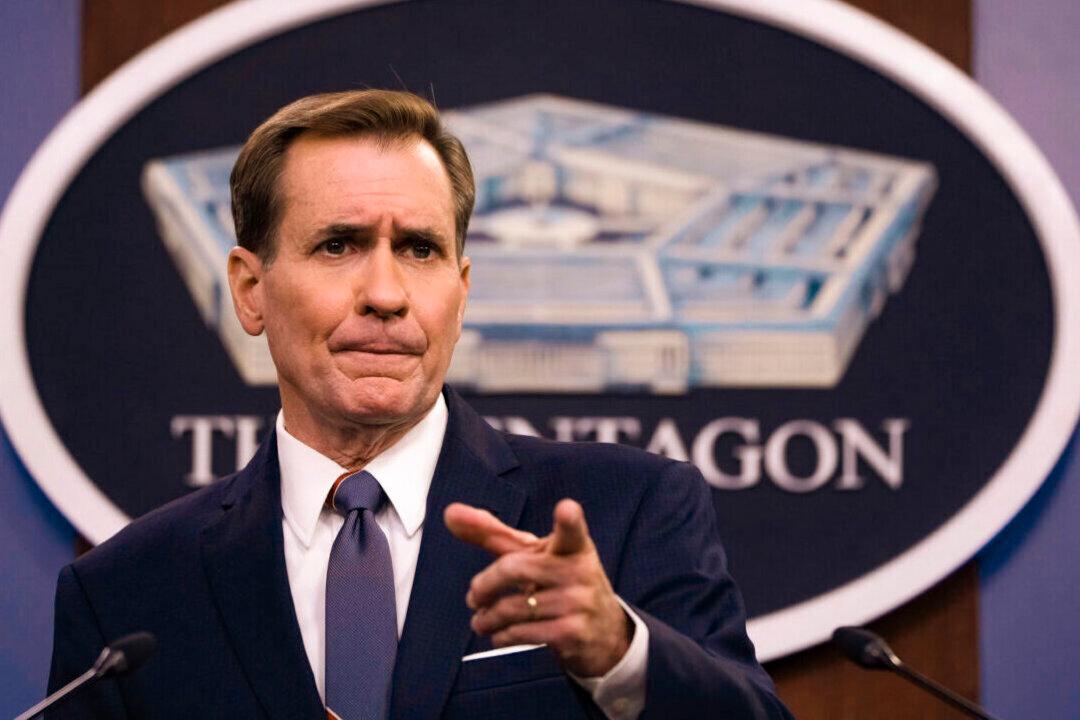The Pentagon said on Nov. 10 that “dozens” of family members of U.S. troops still remain in Afghanistan nearly three months after the Taliban takeover of Kabul and after President Joe Biden withdrew all soldiers from the country.
Pentagon spokesperson John Kirby made the remarks during a press briefing when pressed by a reporter about the “number of immediate family members of U.S. service members in Afghanistan.”





